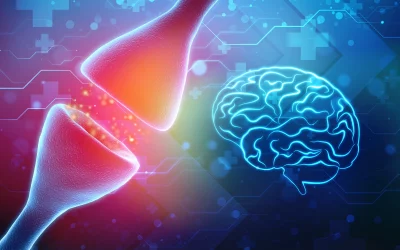Diagnosed with a Traumatic Brain Injury, Now What?
A traumatic brain injury may result in various short- and long-term functional abnormalities that impact thinking, sensation, language, and emotions. The long-term implications of a TBI differ depending on the severity of the damage. It’s also critical to underline that there is no such thing as a “typical” TBI sufferer.
The severity of the initial injury, the length and completeness of physiological healing, the types of functions affected, the meaning of dysfunction in the individual’s life (in the context of his or her roles, values, or goals), the resources available to aid recovery and function, and a variety of other factors all affect people who have had a TBI.
Because of the brain’s intricacy, each person’s response to the damage will be unique. Only one, a few, or most of the probable adverse effects will be experienced by the afflicted person.
Understanding the questions that come with a diagnosis may help you talk about the long-term repercussions of moderate to severe brain damage.
WHAT IS A TRAUMATIC BRAIN INJURY, AND HOW DOES ONE GET ONE?
There’s a lot of jargon when it comes to traumatic brain injuries. To ensure we’re all on the same page in this post, we’ll clarify several words related to TBIs, their causes, and how we assess their severity.
Traumatic Brain Injury (TBI) is a term used to describe a kind of brain injury that occurs.
A traumatic brain injury is a kind of brain damage produced by an external force. Simply put, damage to the brain occurs, and the brain ceases to operate correctly as a result.
Brain damage induced by an external source is an acquired brain injury since it occurs after birth. To be clear, there are additional circumstances in which brain injury may occur that are not caused by an external source. A non-acquired brain injury is caused by genetic or inherited causes, birth trauma, or degenerative illnesses like Alzheimer’s or Parkinson’s.
For clarity, the phrase “acquired brain injury” is further divided into “traumatic” and “non- traumatic” acquired brain injuries by the medical community. A traumatic brain injury is caused by an external force, such as an item striking the head. A “closed head injury,” such as a stroke, causes non-traumatic brain damage.
We dislike the word “non-traumatic” because it suggests that the damage and its repercussions are less terrifying and unpleasant than those associated with a traumatic injury. Both types of brain injuries are distressing for the person who suffers them, and they may lead to the same unpleasant, long-term consequences.
The medical definition of the term “traumatic” is “a major injury to a person’s body,” not “an extremely difficult or unpleasant event that leads someone to have mental or emotional issues for a long time.” This is why blunt injuries are said to be “traumatic,” even though a stroke would be just as upsetting.
In this article, we’re referring to both “traumatic,” and “non-traumatic” acquired brain injuries when we say “TBI.”
WHAT ARE THE CAUSES OF TRAUMATIC BRAIN INJURY (TBI)?
According to the Centers for Disease Control and Prevention, traumatic brain injuries (TBIs) have risen since 2006. (CDC). In 2014, the CDC recorded 2.53 million emergency department
(ED) visits and 56,800 fatalities attributable to TBI. That’s a vast number of brain injuries, and it doesn’t include mild traumatic brain injuries (mTBI), often known as concussions, that didn’t need a trip to the emergency room.
Most traumatic brain injuries are classified as “mild concussions,” which should heal within a week or two. TBIs that are moderate to severe may need hospitalization, surgery, and rehabilitation.
The majority of our patients at Cognitive FX have had long-term issues resulting from a traumatic brain injury. Still, we can also help people who have had non-traumatic brain injuries.
TRAUMATIC BRAIN INJURIES: WHAT CAUSES THEM?
A direct hit to the head is the most common cause of traumatic brain injury, but it may also be caused by any jarring action that causes the brain to crash against the skull. Inflammation and swelling in the brain may injury neurons and prevent some brain parts from obtaining the oxygen and glucose they need to function. The brain’s natural function is disrupted as a result of the injury’s consequences.
Falls, motor car accidents, assault, and athletic accidents are significant causes of traumatic brain injury. TBI is relatively common among military personnel. A TBI may also occur as a side effect of a life-saving procedure like neurosurgery.
NON-TRAUMATIC BRAIN INJURIES: WHAT CAUSES THEM?
Non-traumatic brain injuries are caused by a shortage of oxygen in the brain due to internal bleeding, clotting, or toxins or by pressure from a tumor exerted on certain parts of the brain. This causes brain tissue to be damaged or possibly die.
Stroke, aneurysm, and near-drowning are all common causes of non-traumatic brain injury. Carbon monoxide poisoning, chemotherapy, and lead poisoning are examples of poisons. Inflammation may be caused by bacterial and viral infections (including COVID-19), meningitis, encephalitis, and other disorders.
UNDERSTANDING HOW WE DESCRIBE BRAIN INJURIES: MILD, MODERATE, OR SEVERE
Mild, moderate, and severe traumatic brain injuries are the most common classifications. However, these phrases may not always represent the severity of what patients will endure in the long run as a result of a brain injury.
Even a “slight concussion” may render a person incapacitated. Patients who cannot work or are confined to their homes due to chronic concussion symptoms are routinely treated at CFX.
We can, however, describe how the medical profession distinguishes various types of brain damage.
A concussion is the popular name for a minor traumatic brain injury. Someone who has had an mTBI may or may not have lost consciousness, but it was only for a brief period if they did. (In reality, only around 10% of persons who have a concussion lose consciousness.) In most cases, there is no cerebral hemorrhage and no skull fracture.
We could notice a skull fracture with a mild traumatic brain injury, such as a fracture beneath the eye. Visual evidence of damage to the head is possible. With this injury, there’s a chance you’ll lose consciousness (less than 24 hours in duration). Bleeding is not a life-threatening condition.
A person with a mild TBI may need to be monitored for a while, but the damage usually recovers independently. Typically, they do not need surgery.
A person with a severe traumatic brain injury must lose consciousness for a lengthy period or perhaps be in a coma. It’s possible that the skull has been fractured or that something has pierced it. TBIs that are severe enough to need emergency neurosurgery are common:
If there is a cerebrospinal fluid leak, surgery may be required to place a shunt to drain the fluid or to repair the leak.
A craniectomy removes a part of the skull to alleviate intracranial pressure on healthy portions of the brain owing to bleeding or swelling in the brain.
Epidural hematomas and subdural hematomas are two forms of brain bleeding that may be fatal following a TBI. These bleeding are sometimes minor and may not cause edema. They may be observed in this scenario and may not need surgery.
If the bleed persists and develops swelling within or on the brain, immediate surgery is required. It’s worth noting that those aged 60 and over had the most significant fatality risk following a TBI. Even a minor fall might result in fatal bleeding in this group.
Again, just because an injury isn’t classified as “severe” doesn’t mean it won’t have far- reaching and life-altering implications.
WHAT ARE THE SYMPTOMS OF A TRAUMATIC BRAIN INJURY IN THE EARLY STAGES?
Sometimes it’s evident that someone has suffered a traumatic brain injury and should be sent to the hospital immediately. We know to contact emergency services straight away if someone is bleeding and unconscious after a car accident or a fall from a ladder, for example.
People are often uncertain, though. Visits to the emergency room may be costly, depending on where you reside and your medical coverage; individuals don’t want to overreact. To make matters even more perplexing, a person may seem to be well immediately after an event, yet frightening symptoms emerge within hours or days.
While not complete, the following recommendations for determining if someone has a concussion or moderate to severe brain damage. It’s essential to see a medical expert if you’re unclear about the seriousness of your injuries.
- Difficulty balance or dizziness
- Headache
- Blurry vision
- Confusion about where they are or what day it is
- Slowness in thinking or responding
- Neck discomfort Ringing in the ears
- Sensitivity to light or sound are all signs of a concussion. Bleeding
- Alteration in awareness Person becomes unresponsive Eyes aren’t tracking correctly Pupils are dilated Convulsions or seizures
- Vomiting or nausea are indicators of a moderate or severe TBI, in addition to any signs of a concussion.
- According to the Brain Injury Association of America, traumatic brain injury in children is the top cause of mortality and disability in children and teens. The brains of children and adults are not the same. Children’s injuries aren’t always apparent, and they can’t always express what they’re going through.
- Additional indications of TBI in children include
- Nausea and vomiting
- Unresponsiveness or loss of consciousness Excessive sleepiness
- Difficulty walking, or balance issues. Slurred speech
- Blood or clear fluid pouring from the ears or nose
Unfortunately, the long-term consequences of brain damage on a kid may not be apparent until later in life, so it’s critical to get any suspected injury looked out and treated by a medical professional.
Note: You are not alone if you are experiencing prolonged symptoms after a head injury. Before therapy, many of our patients have headaches, difficulty remembering words, feelings of overwhelm, and other issues. After treatment at our facility, 95% of our patients achieve statistically proven restoration of brain function. Sign up for a free consultation with our team to see whether you qualify for our program.
TRAUMATIC BRAIN INJURY SYMPTOMS AND LONG-TERM EFFECTS
The majority of persons who have a concussion recover entirely within a few weeks of their accident. However, select people, such as those who have had a moderate or severe TBI, will have to struggle with various symptoms for the rest of their lives.
Many of these symptoms and long-term repercussions are the same whether you’ve had a mild, moderate, or severe TBI. They vary in severity from person to person, of course. Some of them are more likely to emerge right after an accident. Others may appear later on. Some symptoms may seem to come and go in response to different settings or events.
The chart below shows some of the most common long-term consequences of a TBI and when they most often manifest after a TBI.
WHAT IMPACT DOES THIS HAVE ON JUDGMENT AND OTHER ASPECTS OF COGNITION?
Essential cognitive functions are most often affected by moderate-to-severe brain damage, such as maintaining attention, focusing on activities at hand, and recalling newly acquired information. These people tend to communicate, consider, and solve issues slowly.
Everyday habits might be perplexing when they are disrupted or when they are overstimulated beyond their tolerance. They may take an excessive amount of time to complete a job because they cannot multitask or go from one work to another without difficulty.
On the other hand, they may leap to conclusions or act rashly in reaction to what they believe are proper replies. Any abstract concepts may be out of grasp, and their speech and language impairment may be a factor. Word-finding difficulties, difficulty comprehending others’ language, and other related issues are examples of these impairments.
Executive functioning, or the sophisticated processing of vast quantities of complex information that we need to operate creatively, competently, and autonomously as humans in a diverse environment, is one of the critical areas damaged by a TBI.
Individuals with TBI may struggle to function well in their social roles because they have trouble planning, keeping track of time, coordinating complex events, making decisions based on a wide range of information, adapting to life changes, and otherwise “being the executive” in their own lives[1].
WHAT IMPACT DOES THIS HAVE ON MOOD AND BEHAVIOR?
The mechanisms in the brain that regulate our social-emotional life are often compromised as a result of TBI. As a result, personality might be significantly or slightly altered as a result of
damage. The alterations may signal to the individual and their significant others that “the person who previously was” is “no longer there,” which might be very difficult for them to accept.
Someone who was formerly upbeat might now be sad. The once delicate and socially savvy negotiator may now be making offensive remarks that embarrass people around him/her.
Dependent behaviors, mood swings, lack of motivation, anger, hostility, lethargy, being excessively unconstrained, and/or being unable to change behavior to meet various situations[1] are possible characteristics.
What additional changes might occur as a result of a moderate/severe TBI?
- Sensory issues include problems interpreting touch, temperature, movement, limb position, and fine discriminating.
- Integration or structuring of sensory perceptions into psychologically meaningful material is referred to as perceptual.
- Vision: hazy vision, trouble measuring distance, involuntary eye movements (nystagmus), and light sensitivity, as well as partial or entire loss of vision, eye muscle weakness, and double vision (diplopia) (photophobia)
- Hearing loss or impairment, ringing in the ears (tinnitus), and increased sensitivity to noises are all symptoms of hearing loss.
- Smell: a loss or deterioration of the sense of smell (anosmia)
- Taste: a loss or a decline of the sensation of taste
- Seizures are convulsions that occur due to epilepsy and may cause an interruption in awareness, sensory perception, or motor movements.
- Physical alterations include paralysis and spasticity. Control of bowel and bladder, Chronic discomfort Sleep disturbances, Deficiency in stamina, Changes in appetite, body temperature regulation, Problems with menstruation
WARRIOR ACCIDENT INJURY LAWYERS
People who have had a TBI may not return to the work they had before the event. They may be compelled to accept a lower-paying job or stop working altogether. They often suffer from temper difficulties, memory loss, chronic exhaustion, seizures, and other disorders that may make it difficult for them to do practically any work.
ven for someone with a low to average salary, the loss of income during a 30-year career might amount to over a million dollars. When you include the agony and suffering, the reduced quality of life, and the expense of future care, the $200,000.00 compensation should have been ten times as much.
Contact Warrior Car Accident Lawyers if you or a loved one has experienced a traumatic brain injury, no matter how minor or severe. Warrior Car Accident Lawyers‘s lawyers are compassionate and knowledgeable in traumatic brain injury claims. In the past, they had secured record awards for their clients who had suffered severe brain injuries.
You can’t afford to put your whole life on the line by selecting just any lawyer. Speak with a traumatic brain injury lawyer immediately to obtain the compensation you deserve. For a free consultation, call 719-300-1100 .
LONG TERM EFFECTS OF TRAUMATIC BRAIN INJURIES
Various things may cause traumatic brain injuries, the most frequent car accidents, falls, and sports injuries. Patients usually heal, but additional dangerous diseases might arise days, weeks, or years after the original injury. Chronic traumatic encephalopathy (CTE) has recently come to light as a disorder that may develop years after injuries in sports like football and boxing. TBI may cause melancholy as well as issues with thinking, memory, personality, and motor abilities.
Following a head injury, many catastrophic neurological consequences may develop, including inflammation and brain cell death. The physical and mental signs and symptoms might last for years. In recent promising research published in the journal ACS Nano, scientists used an animal model of a brain injury to show that neuron-targeting nanoparticles might decrease the symptoms.
The prognosis for patients who have suffered catastrophic brain injuries has improved thanks to a novel treatment method that includes delivering short sections of ribonucleic acid (RNA) to help stop the damaging cascade. Due to the blood-brain barrier, which separates circulating blood from the fluid surrounding brain cells, delivering RNA to the injured area of the brain is difficult.
Sangeeta N. Bhatia and her colleagues at the Massachusetts Institute of Technology’s Institute for Medical Engineering & Science aimed to deliver therapeutic RNA to specified brain cells as soon as possible after an injury. At the same time, the blood-brain barrier was still compromised.
The researchers, led by postdoctoral researcher Ester Kwon, used rabies virus protein to build nanoparticles that target neurons. A strip of RNA was put into the particles to prevent the development of a protein linked to neuronal cell death. Mice were administered the nanoparticles intravenously within a day after getting a TBI.
Nanoparticles escape the bloodstream and collect in the injured tissue. According to the analysis, there was an 80% drop in the targeted protein within the wounded brain tissue.
THE PROGNOSIS FOR TRAUMATIC BRAIN INJURY RIGHT NOW.
Although the new strategy can potentially reduce or stop the gradual loss of brain function, today’s severe brain injuries may still result in long-term neurological impairment. When these injuries are serious, they may affect motor abilities, speech, memory, vision, emotions, personality, and other aspects of one’s life.
Due to medical expenses, rehabilitation, special needs, and everlasting wage loss, the cost over a lifetime may be excessive. Anyone who has suffered a traumatic brain injury or cares for someone who has should get legal advice from a personal injury attorney.
When it comes to obtaining compensation via the judicial system, a trained attorney understands the actual worth of a traumatic brain injury. What seems to be a reasonable offer from an insurance company is seldom near to the true lifetime cost of the damage.
A person who has been injured due to another’s irresponsibility should not be forced to rely on government aid for the rest of their lives. They should be given what they are entitled to, which is a pleasant and self-sufficient existence.
TRAUMATIC BRAIN INJURY’S LONG-TERM EFFECTS ON BONE METABOLISM
TBI causes long-term cognitive, behavioral, and emotional problems and a rise in neurodegenerative disorders. TBI, especially in its milder form, has only recently been more widely recognized as having long-term health effects for the brain and other organ systems.
Based on recent mouse genetic research, the idea that hormonal signals and neuronal circuits that start in the hypothalamus play a crucial role in controlling the skeletal system are gaining traction. As a result, many TBI patients have had hormonal problems, bone fragility, and an increased risk of skeletal disorders.
According to animal model research, TBI may worsen the activation and inactivation of molecular pathways, resulting in alterations in both osteogenesis and bone degradation. Through enhanced vascularization and activation of systemic factors, TBI has also been demonstrated to cause heterotopic ossification and increased callus development at muscle or fracture damage sites.
TBI-induced alteration of endocrine factors and neuropeptides has also been linked to negative skeletal consequences in recent research. The long-term effects of TBI on the skeletal system and TBI-induced signaling pathways that lead to the creation of ectopic bone, impaired fracture healing, and decreased bone mass will be discussed in this study.
WHY TRAUMATIC BRAIN INJURIES CAUSE DAMAGE
The interruption of brain function caused by an external force or a forceful blow to the head is known as traumatic brain injury (TBI). TBI is the main cause of mortality and disability in both war and civilian populations, causing a variety of physical, cognitive, social, emotional, and behavioral deficits.
TBI affects more than 1.7 million individuals in the United States each year, and it is a leading cause of mortality and disability globally, particularly among children and young adults.
Many survivors may need hospitalization and extensive rehabilitation, as well as long-term physical, cognitive, and psychological problems. Many numbers don’t account for those who haven’t reported an accident or sought medical help, so their disability might be much greater, with long-term effects.
TBI is categorized as mild, moderate, or severe depending on the severity of the damage and the location of the injury, and the period of loss of consciousness (2). Symptoms may vary from minor concussions that last a few seconds to more serious injuries that last years or even result in death.
Because of the rotational stress induced by head movement, individuals who have sustained mild TBI or concussions report deleterious consequences months later (3). TBI, in reality, is the start of a long-term process that affects many organ systems as well as bone that is proximal or distal to the damaged site. The effects of TBI on the skeleton and probable processes will be discussed in this review.
MORTALITY AND MORBIDITY AFTER A VIOLENT EVENT
TBI with a high clinical severity has been linked to an increased risk of death. According to the CDC, over 50,000 people die in the United States each year from a TBI, with around 22% dying within the first five years. TBI patients with cerebral edema (mild, moderate, or severe) were eight times more likely to die than TBI patients without edema, while mild TBI-related edema patients were five times more likely to die (4). Survivors with moderate-to-severe TBI who get rehabilitation have a 9-year reduction in life expectancy (5).
A corpus callosum diffusion tensor imaging research indicated that people with moderate TBI had substantial white matter abnormalities up to 3 months after the injury (6). These results demonstrate that mild TBI, which was previously thought to be safe, may increase TBI-related morbidity.
DISEASES OF THE NERVOUS SYSTEM AND NEURODEGENERATIVE DISEASES
Neurological and neurodegenerative sequelae caused by trauma are rather prevalent. An estimated 70% of individuals in the United States have been exposed to a traumatic accident in their lives, with around 20% developing PTSD as a result. Psychological problems (such as depression and anxiety), neurological disorders (such as epilepsy and sleep disorders), physical injuries, drug misuse, and weariness are all more common among these people, all of which may contribute to bad judgments and behaviors as physical symptoms.
Concussion, also known as mild TBI, accounts for around 90% of all brain injuries (7). While many of the effects of a mild TBI go away within a few months, a fraction of these people, in addition to moderate and severe TBI, have slow cognitive decline and motor abnormalities similar to those seen in Alzheimer’s disease, Parkinson’s disease, and chronic traumatic encephalopathy (8).
THE EFFECTS OF A TRAUMATIC BRAIN INJURY ON THE SKELETAL SYSTEM
Significant skeletal abnormalities have been reported to occur due to traumatic brain injury and its related physiological processes.
While the long-term effects of TBI on remote organs that are influenced by a neural and neuroendocrine humoral outflow from the brain via the pituitary are being studied extensively, little is known about the long-term consequences of TBI on remote organs that are under the influence of neural and neuroendocrine humoral outflow from the brain via the pituitary. The finding of bone control by neural signals is a new field of research uncovering new regulatory axes between the brain system and bone cells.
Given the importance of hypothalamic nuclei cells in the neuro(endo)crime regulation of bone remodeling, brain damage is likely to significantly influence the regulatory molecules that govern skeletal development and maintenance. The remainder of this review will concentrate on the long-term effects of TBI on the skeletal system and possible mechanisms of TBI impacts on bone.
Every TBI case is unique, and the personal injury attorneys Warrior Car Accident Lawyers, can precisely evaluate its genuine worth. They also know how to get their clients the money they deserve. Do not entrust your case to a slacker settlement lawyer.
On your side, you’ll need a tough combatant. Make an appointment to talk with a knowledgeable personal injury lawyer immediately. There is no fee or commitment, and all data is kept private. Call now at 719-300- 1100. You don’t have to pay anything until we win.
WARRIOR’S TRAUMATIC BRAIN INJURY LAWYERS CAN HELP YOU NOW
Once your physician establishes the initial diagnosis and prognosis for recovery, it is important to consult with an experienced traumatic brain injury attorney to determine if the injury was due to someone else’s negligence, whether the injury occurred in a car or motorcycle accident, or during a sporting event.
The attorneys at Warrior Car Accident Lawyers, are committed to understanding the medical nuances of traumatic brain injury so that they can procure just compensation for victims. If we can assist you with a free case evaluation and consultation regarding a traumatic brain injury, please call us at 719-881-8976.
Warrior Car Accident Lawyers
1902 W. Colorado Ave., Suite 100
Colorado Springs, CO 80904












